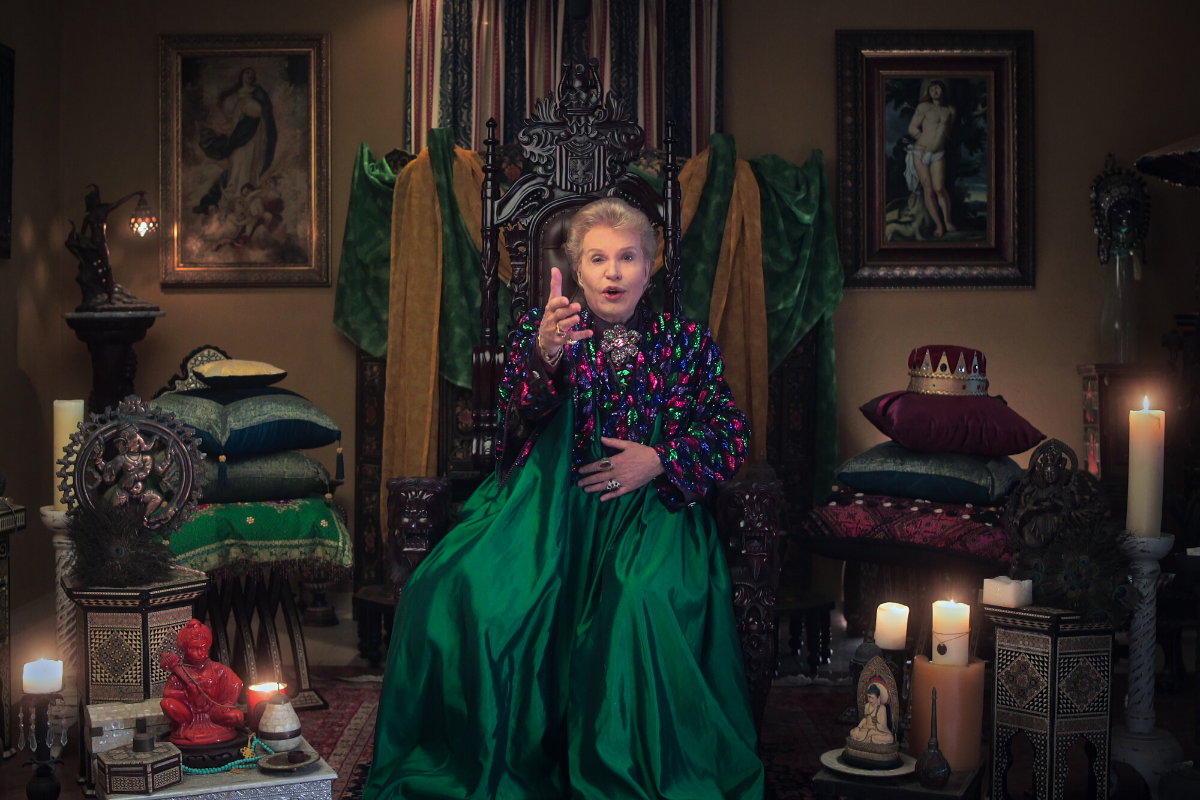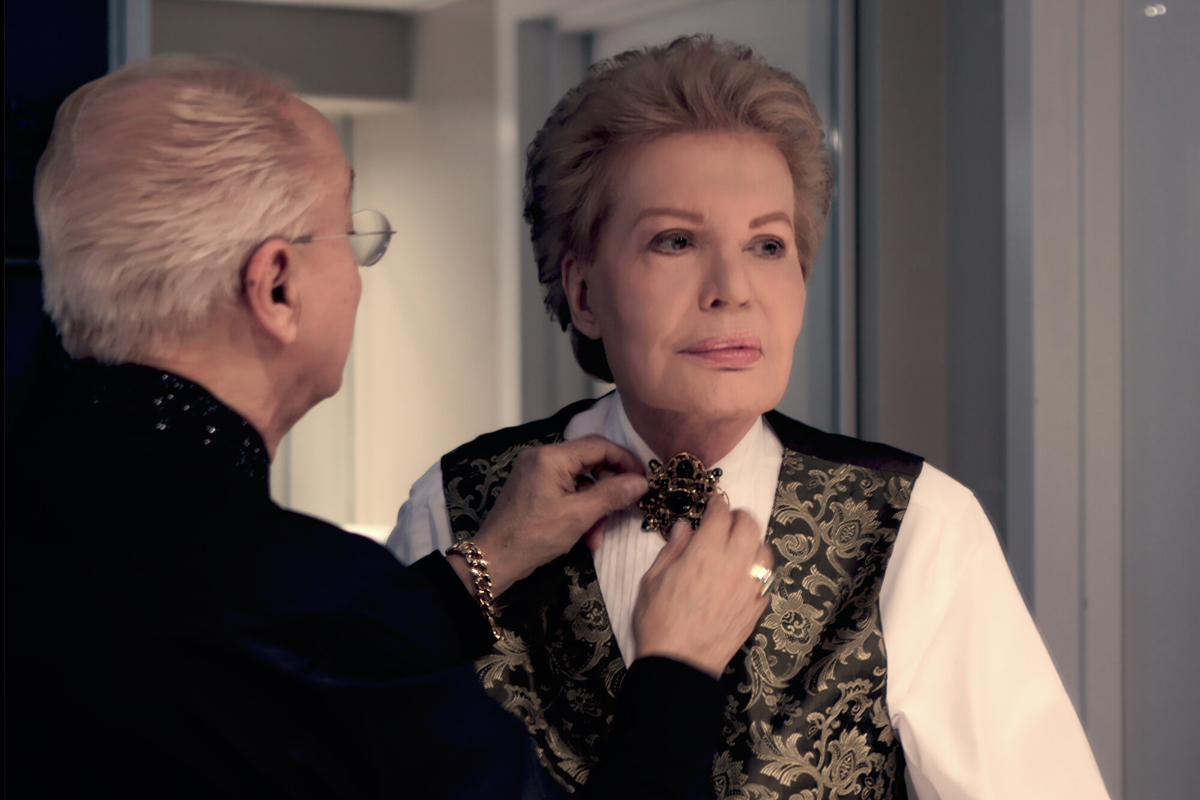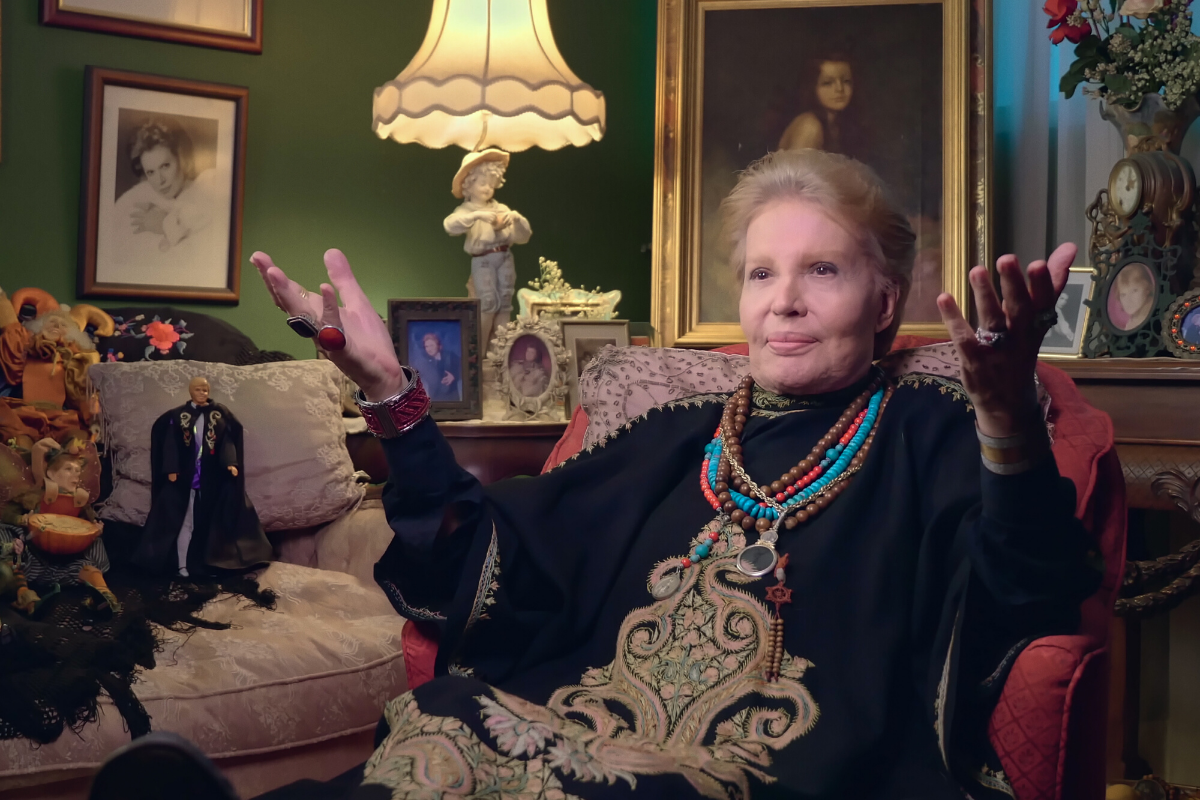

Walter Mercado (Photo courtesy of Netflix)
Growing up there were three things that for sure happened in my house: we watched telenovelas before, during, and after dinner (name one novela and we can probably get deep into it), sang along to Juan Gabriel’s iconic songs (no, I wasn’t a singer, but with Juanga it’s about the lyrics and what they make you feel), and witnessed the spectacle of Walter Mercado’s horoscope readings. Yes, spectacle.
I’m a Libra. We’re ruled by the planet Venus, named after the Roman goddess of love. We adore balance, beauty, and diplomacy. Making a decision will always be the bane of our existence. And that’s all I learned from Walter about Libras. Sometimes I relate to those mainstream notions of my zodiac sign, but most of the time I leave wondering if that’s really who I am.
Trying to define my identity was —and is still— an ongoing process. When I was a kid, it was definitely harder, but something clicked when I saw Walter Mercado for the first time on TV. I was around four or five. Univision’s Primer Impacto was on. On the tail end of the telecast, the host introduced him. Cue in a mystical, eerie, almost otherworldly music with astrological graphics on screen. Cut to a wide angle shot. In frame: a figure, standing firmly on the ground in a long and big cape. Slowly the camera zooms in, inching closer, but not too close. He begins to talk, in a commanding yet calming tone—and very campy, let’s be real. Who was he? Walter, obviously, but who was he?
He brought light, humor, and love into our homes. As time went on, I perceived that he was a unique character, a very different man from the ones I was used to seeing on any screen. Despite being a young boy, and despite being totally different from him —those capes and all that fabulousness— I knew that I could see myself in him, but I didn’t know exactly how or why. Time would let me know and it would make sense later on, but at the time, he was an enigma, waiting and wanting to be deciphered, and a clear reflection of myself all at the same time.
And perhaps that’s why so many people gravitate towards him. They were curious about Walter the astrologer, but mainly Walter the person.
That is why Netflix’s documentary Mucho Mucho Amor is downright fascinating. Resorting to candid interviews with those close to Walter —those who knew him professionally and personally— and even Walter himself, directors Cristina Costantini and Kareem Tabsch shed light on the human behind the extravagance, the soul behind the screen.
The directors make a bold choice right off the bat: to not dwell too much on Walter’s upbringing. They do, however, establish enough exposition to make clear that he wasn’t like the other boys; he resuscitated a dying bird by just being Walter. Word spread in the village of his miraculous powers that he became the village healer. Not much happened after that until he decided to join a theater group in Ponce, Puerto Rico and seriously pursue acting and in there lies my first surprise.
Walter the actor. Okay, that definitely makes sense.


Walter Mercado and his life-long assistant Willy Acosta. (Photo courtesy of Netflix)
His ascend to become the most recognizable astrologer almost didn’t happen. While promoting a play at a television show, he arrived in a cape and after finishing his segment —and because the producers needed to fill in time on the show— he was asked if could he do astrology readings since he loved astrology so much. And the rest is history.
For the span of two years, the documentary follows Walter, from seeing him do mundane things like eating to the preparation to fly to Miami and join the organizers of the History of Miami Museum’s opening night for a retrospective on his career. All is done with his long-life assistant Willy Acosta on his side. Their relationship is not at all sexualized, but rather shown as a deep fraternal love. And throughout the film, Walter is asked about sexuality —a topic he’s not too keen on talking about— but there’s an indication that he wasn’t interested in a flesh-on-flesh contact more so than he was on the ways the human body can transcend its carnal desire for another to be in commune with the earth. Yes, he was that abstract.
In terms of technical terms, a clever directorial choice is the use of small animated scenes showcasing major Tarot cards —The Magician, The Tower, The Hermit, among others— to break down different stages of Walter’s life. The animation is a nice little breather from the many one-on-one interviews and a nice complement to what inspired Walter’s career.
Even though the camera is in Walter’s house and he’s asked personal questions, the documentary doesn’t have a taint of voyeurism. Sure, we get to see Walter in a vulnerable state of aging and reflecting on his life, telling us what he considers a highlight, often with delight in his voice, but also pain in his eyes.
One of the most difficult subjects for him was the retelling of the conflict with his ex-manager Bill Bakula. There’s a villain in every story and Bill is it. Aside from profiting off of Walter throughout the years, he made sure to gain his trust so much so to the point of accomplishing to have total control over him by relinquishing him of his name legally so that he couldn’t use it anywhere. He basically stripped him of working in any type of media, but if he did want to work, he had to pay Bill one hundred percent of the profits. He essentially owned Walter. Eventually the court battles to fight for his name back brought a happy ending, but he broke ties with Bill, a man he considered a son.


Walter Mercado (Photo courtesy of Netflix)
Perhaps it was that forced exile that encouraged Walter to invite the cameras into his home. He wanted his audience to know that while he was away, he still remembered them; that while he was away, there’s some things he wanted us to know about him; that while he way away, he still wanted a last time to reconnect with that Walter we all know, one who exuded confidence and whose message was one of authenticity, acceptance, and love.
Throughout the film I caught myself smiling every time Walter would say a funny remark or utter one of his witticisms. One that I especially enjoyed was when he said, “I don’t rehearse to be myself.” You can read that line literally and it works, but I’m sure that’s not all he meant in that phrase. The act of rehearsing requires patience to conduct a single act over and over again, it’s a never ending process of trial and error until you get the ideal combination for perfection. In that way, Walter was never concerned to appear perfect. That penchant for extravagance, that nurture for love and peace, that push for gender-bending norms, that was all him—what you saw is what you got.
As an adult, friends have asked me what gay character (fictional or otherwise) made such an impression on me to the point of questioning my sexuality for the first time. It’s a hard question to answer considering the rampant homophobia and machismo in Latino media, which instead of portraying three dimensional LGBTQ people resort to mock them. They are the butt of all jokes, all puns intended.
Watching Mucho Mucho Amor solidified what I suspected all along: Walter Mercado was the first queer person on TV that made me question and finally realize that I too was different. As a young boy, I wanted to see somebody who wasn’t afraid to be themselves, who didn’t hold back for fear of facing ridicule or rejection. In the end, that’s what we all queer people want: to be invited to take up space to show who we are without censoring our voice, without editing our image. For that, I thank you, Walter.
If you want to learn more about what went into the making of this film, take a few to listen to the interview Julio Ricardo Varela did with Costantini for Latino Rebels Radio earlier this year, way before Walter graced Netflix.
***
Luis Luna is Latino Rebels’ arts writer and associate producer of Latino Rebels Radio. He tweets from @luarmanyc.


